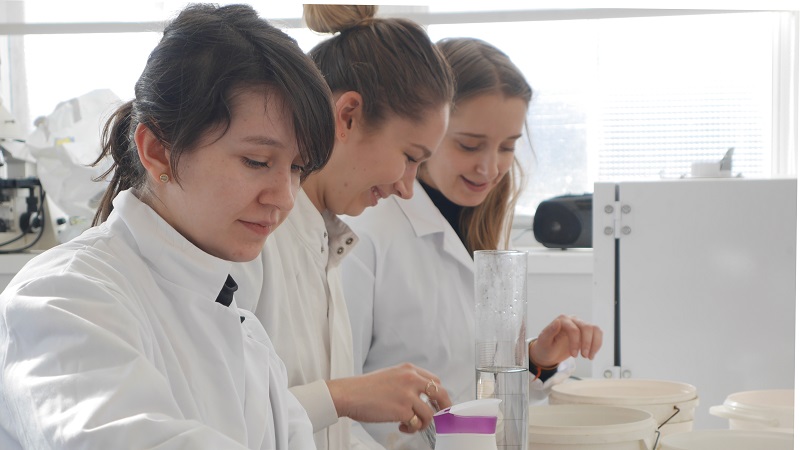Published:

A group of Heriot-Watt University fashion and textile students have travelled to Orkney to research how microfibre shedding from clothes contributes to microplastic pollution.
The postgraduate students journeyed to the Scottish island to work with others at the University's International Centre for Island Technology, testing shedding, specificially natural fibres.
When a piece of clothing is washed, it sheds thousands of microfibers which eventually end up in the ocean. These pose a risk to sea life and aquatic organisms which feed or ingest the fibres incidentally or with other food sources.
Currently, an average of 1,900 fibres per garment per wash and 700,000 fibres from an average 6kg wash have been recorded.
Now, the students will be testing sediments in laboratories with the aim of building an understanding of the problem and hopefully, a long-term solution.
Dr Sue Thomas, School of Textiles and Design said: “This is a unique opportunity for postgraduate students from both schools to get together look at problem that is threatening our water and marine life, thus planet. No other university has two Schools looking at this problem from both ends of the loop!
“It's an issue that impacts us all. Students from our MSc Ethics in Fashion programme cover an extensive range of ethical issues effecting the fashion and textiles industries.
“We are really excited to be able discuss this vital area in situ with expert researchers and work alongside them in the incredibly beautiful surroundings of Stromness. Our students are thrilled as it's a first time in Orkney for them all!”
Dr Angela Capper, from the International Centre for Island Technology added: “Millions of tonnes of plastic are produced for the textiles industry each year. Shedding from these garments through general wear and washing processes result in microfibres entering wastewater and ultimately our oceans with potential impacts to aquatic organisms and ultimately to us.
“Working with students from the School of Textiles and Designs will to raise the profile of this issue within the textiles arena and hopefully inspire the students to think of new ways to tackle this problem at the start of the manufacturing process.”